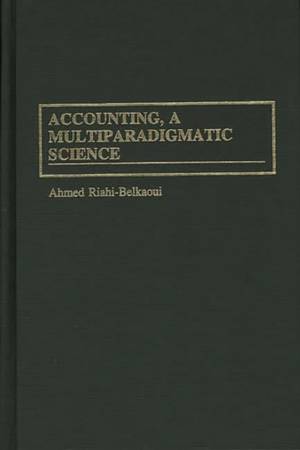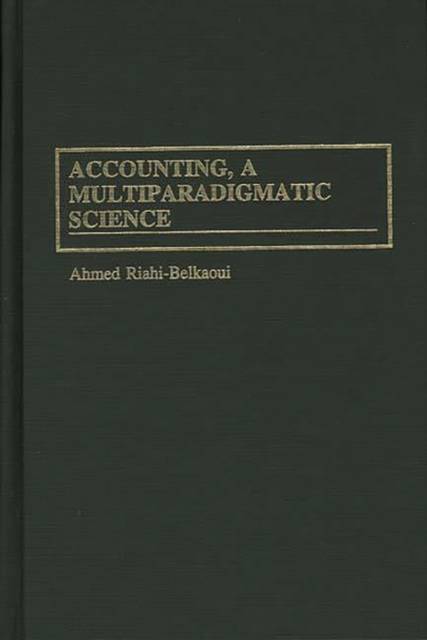
- Afhalen na 1 uur in een winkel met voorraad
- Gratis thuislevering in België vanaf € 30
- Ruim aanbod met 7 miljoen producten
- Afhalen na 1 uur in een winkel met voorraad
- Gratis thuislevering in België vanaf € 30
- Ruim aanbod met 7 miljoen producten
Omschrijving
Once considered an intruder into the academic community, accounting has developed into a full fledged social science, with fierce competition among its different paradigms. Riahi-Belkaoui explains that these paradigms, each striving for primacy through publications, conferences, and other means of self-exposure, are characterized by their exemplars, their image of the subject matter, their theories, and finally the methods they use. In doing so they have given accounting a certain, new cachet. Riahi-Belkaoui thus provides a critical examination of each of these paradigms in an effort to guide researchers and policymakers in their search for proper interpretations and positionings of the products of accounting research. A stimulating discussion for academics and knowledgeable professionals alike.
In six chapters each devoted to a specific paradigm, the book elucidates each paradigm's contribution to accounting thought and practice. Covered are the anthropological/inductive paradigm, the true income/deductive paradigm, the decision usefulness/decision model paradigm, the decision usefulness/decision maker/aggregate market behavior paradigm, and the decision usefulness/decision maker/individual user paradigm. The result is a book that makes unique use of philosophy of science concepts in accounting, and a book that will also have applications in university graduate-level courses in research methodology and accounting theory.Specificaties
Betrokkenen
- Auteur(s):
- Uitgeverij:
Inhoud
- Aantal bladzijden:
- 208
- Taal:
- Engels
Eigenschappen
- Productcode (EAN):
- 9781567200485
- Verschijningsdatum:
- 17/07/1996
- Uitvoering:
- Hardcover
- Formaat:
- Genaaid
- Afmetingen:
- 163 mm x 242 mm
- Gewicht:
- 471 g

Alleen bij Standaard Boekhandel
Beoordelingen
We publiceren alleen reviews die voldoen aan de voorwaarden voor reviews. Bekijk onze voorwaarden voor reviews.











